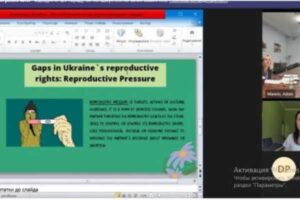The University of Liverpool, within the framework of partnership relations with Sumy State University, provided the opportunity for free participation (offline and online) in the International Summer School to our students, postgraduates, and teachers. The Summer School offers to master several transdisciplinary courses on sustainable development, critical thinking and OSINT analysis, international relations, communication skills in an English-speaking environment, etc., during a 3- or 6-week intensive training program. Summer School students who successfully complete their studies will receive 7 to 15 ECTS credits. In addition, participation in the Summer School even online involves getting to know the city of Liverpool, many cultural events, and international communication using the University’s Student Hub resources. This year, students and teachers from Australia, Great Britain, Ghana, China, Hong Kong, Japan, and Sumy State University from Ukraine are participating in the Summer School.
Postgraduate student of the department Alina Rassokhina, who is already in Great Britain, was able to join the events offline. International Law students Dalila Bondhas, Victoria Vyunyk, Arina Holokha, Stanislav Kursa, Milana Stepka, and department teachers Vladyslava Zavhorodnia, Anna Slavko, and Olga Shvaher are studying online at the Summer School.
On July 5, the defense of works based on the results of the first Module “Sustainable Development Goals: Global Challenges, Local Actions, Achieved Outcomes,” took place.
It is nice to note the relevance of the topic chosen by our students and teachers. In particular, the reports concerned the protection of children’s rights through the prism of achieving the goals of sustainable development (Viktoria Vyunyk), guarantees of reproductive rights in Ukraine (Dalila Bondhas), legal aspects of the development of ecological culture (Milana Stepka), the quality of legal education in the context of the challenges of war and transitional justice (Vladislava Zavhorodnia).
Studies are ongoing, so we wish our students and colleagues fruitful work and further success! We also express our sincere gratitude to the University of Liverpool and the people and government of Great Britain for the much-needed support we need in these difficult times.



